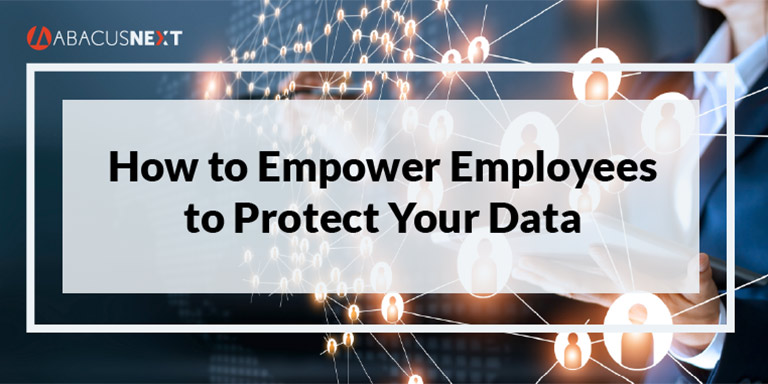How to Empower Employees to Protect Your Data


Cyberattacks are so prevalent these days, we’re not even surprised to hear about them anymore. Sadly, it’s more of a certainty than a possibility that you and your firm have been the target of a cyberattack. While hackers can take advantage of network vulnerabilities, insider threats make up nearly 75% of security incidents. Moreover, human errors and process failures made up 80% of incidents reported to the International Commissioner’s Office in Q4 of 2017.
Underestimating the value of passwords, sharing account information and being tricked by phishing attacks are common missteps that can lead to major consequences. Undertaking companywide training is a small investment that could go a long way in protecting your data and creating a sense of ownership among employees. Here are some ways you can simultaneously empower your employees and increase data security:
- Share personal data on a need-to-know basis. Few groups other than HR and management need access to employee information, just as IT is one of the only departments qualified to open your firm’s network data. Limit internal access to these types of information and explain the importance of doing so to team members.
- Verify the identity of anyone who comes into contact with your firm’s data. Here we’re talking less about internal employees and more about external personnel, including vendors, support teams and clients. Managers and IT can work together to create and enforce a policy that mandates social media, image, and personal record searches on anyone who comes into contact with your data.
- Teach employees how to protect firm data, and then enforce security measures. Recommended digital security measures include ensuring employees don’t “Guest” or unsecured Wi-Fi networks for business purposes and requiring them to create strong passwords. IT can help enforce these measures by providing secured Wi-Fi access within the office and educating them on the dangers of unsecured public WI-FI and the importance of using strong passwords. Invest in physical security as well. Enforce a “clean desk” policy that asks employees to lock their computers when they leave their workstations and clear paperwork off of their desks (especially documents with sensitive information). Keep track of employees who use work-sponsored devices, and educate them on how to protect that equipment during travel. Lastly, report missing devices right away.
Now more than ever before, firms must employ best practices to protect sensitive data and minimize their risk of falling victim to a security breach. By training employees on the importance of data security and their roles in safeguarding data, your firm will optimize its security and leverage from the diligence of its employees.
Looking for more? Schedule a free Cybersecurity Assessment today!